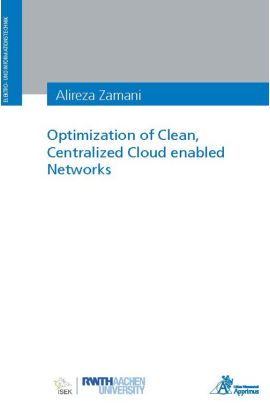Centralized-Radio Access Network (C-RAN) offers promising potential for efficient management of radio resources and computing resources, which is necessary for meeting the Quality of Service (QoS) demands in an interference-limited network. However, its implementation faces several technical challenges. Traditional association strategies are not suitable for the high density networks and cooperative transmission techniques. Furthermore, the efficacy of cooperative transmission techniques is dependent on fronthaul capacity and Channel State Information (CSI) accuracy, which are often neglected. In the central unit (CU), the advancements in virtualization and parallelized cloud computing necessitate the dynamic allocation of computing resources. Lastly, with the promising applications of Unmanned Aerial Vehicle-Small Cells (UAV-SC), for the purposes of augmentation or disaster recovery, their coexistence with C-RAN is to be fully investigated.
First, the optimization of ultra-dense downlink C-RAN under a limited capacity fronthaul is investigated. To this end, joint mathematical frameworks and algorithms are proposed with the aim of improving energy efficiency via the design of the precoders, user-to-cell associations, cooperation clusters, and RRH operation modes. Important practical system restrictions such as CSI inaccuracy and fronthaul capacity models are taken incorporated in the design process. Energy-efficient low complexity design frameworks to the problem are developed which can be used to study more complex systems. On this note, the single receiver antenna system model is extended to a multi-stream multiple-input and multiple-output (MIMO) C-RAN, for which the communication strategy is optimized. Computing resource allocation is also investigated while modeling the behavior of parallel processors and a novel framework is proposed that aims to minimize the power consumption of the processors via joint resource allocation and package offloading, subject to latency constraints. Finally, the augmentation of an existing C-RAN with UAV-SC is considered. This coexistence requires the optimization of the number of UAVs, their deployment position, transmit power, and user association. The results of this dissertation prove that the novel joint optimization solutions can greatly reduce the power consumption of C-RAN and pave the way for providing ubiquitous energy-efficient communication in future networks.
| Autor | Zamani, Alireza |
|---|---|
| Gewicht | 0.176 kg |
| Erscheinungsdatum | 27.09.2021 |
Elektro- und Informationstechnik
Optimization of Clean, Centralized Cloud enabled Networks
Kurzbeschreibung
Centralized-Radio Access Network (C-RAN) offers a promising potential for efficient management of radio resources and computing resources however, it also faces several technical challenges. The focus of this dissertation is the development of novel joint mathematical frameworks and algorithms that take into account the inter-dependency of different system parameters to optimize the performance of C-RAN.

